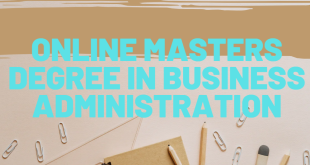An online teaching degree enables educators to earn their qualifications via internet-based programs. It allows for flexible scheduling and remote study access.
Pursuing a degree in teaching online is a practical route for aspiring educators seeking flexibility without compromising educational quality. These programs cater to various specializations, from early childhood education to higher education administration. Students can balance life’s demands while completing coursework and gaining the necessary skills for classroom success.
With advancements in digital learning platforms, online teaching degrees offer interactive and engaging content designed to prepare future educators. Universities across the globe provide accredited programs that can lead to licensure and many offer support services like virtual tutoring and career advice to facilitate student success.
This modern approach to teacher education is ideal for self-motivated individuals needing to manage their studies alongside personal and professional responsibilities.
Pursuing An Online Teaching Degree
Embracing distance learning for teachers offers significant flexibility, allowing educators to balance their studies with personal and professional responsibilities effectively. Students within these programs can engage at times convenient for them, making it easier to juggle coursework alongside existing commitments.
This adaptability is a major draw for individuals who require a more tailored educational experience.
In addition to the convenience factor, an online teaching degree provides access to a wide array of learning resources. Digital libraries, online journals, and educational forums become readily available, opening doors to the latest teaching methodologies and research.
The opportunity to join diverse learning communities also enhances the learning experience; students can connect with peers and professionals from around the globe, fostering a rich exchange of ideas and best practices in education.
Career Opportunities With An Online Degree
Securing an online teaching degree opens a plethora of career paths for educators in the modern digital landscape. Graduates often find themselves well-equipped to take on teaching positions at multiple levels within educational institutions, ranging from primary schools to higher education facilities.
This versatile qualification allows for specialization in subjects or the pursuit of general educational roles, meeting the diverse needs of various learning environments.
The pathway doesn’t end within the confines of traditional classroom boundaries. Those with an online teaching degree may transition into educational administration, utilizing their skills in curriculum development, educational policy, or school management.
This pivot can lead to influential roles such as school principals, department heads, and educational consultants, marking a significant impact on educational quality and institution success.
Beyond conventional roles, there are also abundant opportunities outside traditional classroom settings. Graduates could explore roles in corporate training, educational technology, instructional design, or become advocates in educational nonprofits. These positions leverage educational expertise to enhance learning experiences and promote education in non-traditional arenas.
Educational Potential Through Digital Learning
The landscape of education has been transformed through digital learning, offering a platform for students to pursue an Online Teaching Degree with flexibility and innovation. Personalized learning approaches in an online environment empower future educators to cater to diverse student needs.
By engaging with a curriculum that adapts in real-time, teacher candidates develop the ability to create customized learning experiences, which is crucial in today’s varied educational settings.
Pursuing an Online Teaching Degree lays the groundwork for understanding educational theories key to effective teaching. A strong academic base in these theories allows for the design of effective lesson plans and learning outcomes, tailored to the unique learning styles and abilities of students in a virtual space.
The development of advanced teaching skills through an Online Teaching Degree equips educators with cutting-edge methods and technological tools. This professional growth is essential for enhancing student engagement and improving educational outcomes. A focus on innovative teaching techniques prepares educators to excel in both online and traditional classrooms.
Curriculum And Courses Offered
An online teaching degree program typically encompasses a variety of core subjects essential for establishing a solid foundation in education. These subjects include Educational Psychology, Classroom Management, Lesson Plan Development, and Assessment Strategies.
Within these areas, students learn about developmental stages, behavior management, instructional design, and evaluating student progress.
Specializations and electives provide an opportunity for students to tailor their education to specific interests or career goals. Examples of specializations might include Special Education, ESL (English as a Second Language),
STEM Education (Science, Technology, Engineering, and Mathematics), or Early Childhood Education. Elective courses can range from Advanced Instructional Strategies to Literacy Intervention.
The program also emphasizes the integration of technology in education. This component prepares future teachers to leverage digital tools and platforms for interactive learning experiences, incorporating multimedia resources into their teaching and fostering collaborative learning through technology.
Tips For Successful Online Learning
Effective time management is crucial for excelling in an online teaching degree. Establishing a regular study schedule and setting specific goals can dramatically boost productivity. Breaking down larger tasks into more manageable chunks allows for steady progress, thereby reducing feelings of being overwhelmed.
Staying motivated and focused can be challenging in a virtual learning environment. Creating a dedicated, distraction-free study space is essential. Self-discipline becomes key; rewarding yourself for hitting milestones can help maintain motivation. Additionally, visual aids like to-do lists and progress trackers can provide visual feedback on your achievements and keep you on track.
Support networks play a pivotal role in online education. Participating in online forums and study groups fosters a sense of community and provides opportunities for collaborative learning.
Peer support is an invaluable resource for overcoming academic challenges and can lead to deeper understanding of complex concepts. Indeed, interactions in these forums can mirror in-person classroom dynamics, making the online experience more engaging and effective.
Accreditation And Certification
Choosing an accredited online program is crucial for aspiring teachers who wish to ensure their education is recognized by employers and peers within the field of education. Accreditation implies that an academic program meets rigorous standards set forth by authoritative educational institutions.
Prospective students can trust that accredited programs provide the essential knowledge and skills required for effective teaching.
For those seeking to enter the teaching profession, it’s important to understand that state certification requirements vary considerably. Each state maintains specific criteria that must be satisfied to attain a teaching position.
Typically, this includes completing an accredited degree program, passing state-administered exams, and undergoing a background check. Students should research their respective state’s requirements thoroughly to ensure they pursue an appropriate online teaching degree program.
Teachers committed to their professional growth can benefit from continuing education and professional development courses. These courses are designed to enhance teaching strategies, stay updated with educational trends, and often contribute to salary increments and recertification processes.
Engaging in these programs reflects a teacher’s dedication to lifelong learning and commitment to excellence in education.
Pathways To An Online Teaching Degree
Online teaching degrees offer various pathways for individuals at different stages of their educational careers. Undergraduate programs are designed for aspiring teachers and typically include coursework in educational theories, instructional strategies, and fieldwork experiences.
Prospective educators can earn a Bachelor of Arts (BA) or Bachelor of Science (BS) in Education, with elective areas focusing on special education, elementary education, or secondary education.
For those seeking career advancement, a range of master’s and doctoral programs are available online. These programs often focus on educational leadership, curriculum development, or specific subject areas for K-12 instruction. Educators can advance their expertise, qualify for higher salary tiers, or transition into research or administrative roles.
Bridge programs cater to professionals from various backgrounds who wish to transition into teaching. These programs recognize prior work experience and education, providing a condensed pathway to obtain teaching certification.
Whether it’s through a post-baccalaureate program or alternative certification courses, professionals find these programs a gateway to a rewarding career in education.
Balancing Work And Study
Online teaching degrees offer a unique opportunity to balance work and study, which can be particularly beneficial for those with professional or family obligations. Earning a degree online allows for a flexible schedule, enabling students to complete coursework at their convenience. This approach can help to alleviate some of the stress related to juggling multiple responsibilities.
Many teachers who have successfully navigated this path recommend utilizing various tools and apps that are designed to enhance online learning and improve time management. Applications such as Google Calendar or Trello can be instrumental in keeping track of deadlines and assignments.
Furthermore, most institutions that offer online degrees understand the unique challenges faced by their students and typically provide a wealth of support systems and resources. These may include virtual tutoring, online libraries, and even dedicated advisors to help guide students through their educational journey.
Online Masters Degree in Business Administration
Global Impact Of Online Teacher Education
The advancement of online teacher education is transforming educational paradigms across the globe. With the emergence of digital platforms, educators worldwide access innovative teaching methodologies and curriculum design techniques. This accessibility breaks previous boundaries and fosters an inclusive learning environment.
Success stories abound, with teachers impacting communities and instigating educational reform through knowledge and skills gained online. Digital education prepares teachers to address diverse classrooms and adapt to various learning needs, ultimately fostering positive outcomes in different educational systems.
Online programs also promote cross-cultural collaboration, connecting educators from around the world. This creates a valuable exchange of teaching practices and cultural perspectives, enhancing teaching effectiveness and student engagement across different regions.
Frequently Asked Questions For Online Teaching Degree
Is An Online Teaching Degree Respected?
Yes, online teaching degrees are respected, especially when obtained from accredited institutions. Employers recognize the flexibility and dedication required for online learning. Online degrees can equip educators with valuable digital skills for modern classrooms.
How Long Does Online Teaching Certification Take?
The duration for online teaching certification varies by program. Typically, it ranges from a few months to two years. It depends on the course intensity, your pace, and whether you already possess some credits or a degree.
Can I Teach K-12 With An Online Degree?
Yes, you can teach K-12 with an online degree, provided it’s from an accredited program and includes teacher licensure. States require a teaching license for K-12 educators, which online programs often prepare you for.
What Are The Costs Of An Online Teaching Degree?
Costs of online teaching degrees differ widely by school and program length. Generally, they can be more affordable than traditional degrees. They range from $5,000 to $20,000, with scholarships and financial aid available for eligible students.
Conclusion
Earning an online teaching degree is both a versatile and practical step towards a fulfilling career in education. This path offers the flexibility to study at your own pace, while opening doors to various teaching opportunities. Embrace the future of learning by starting your journey online, and join a community of educators shaping minds across the globe.



